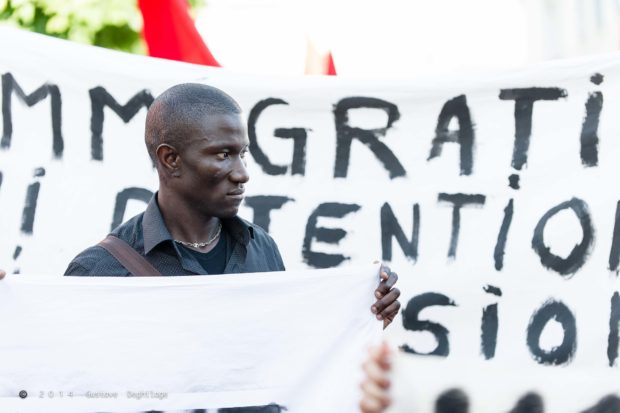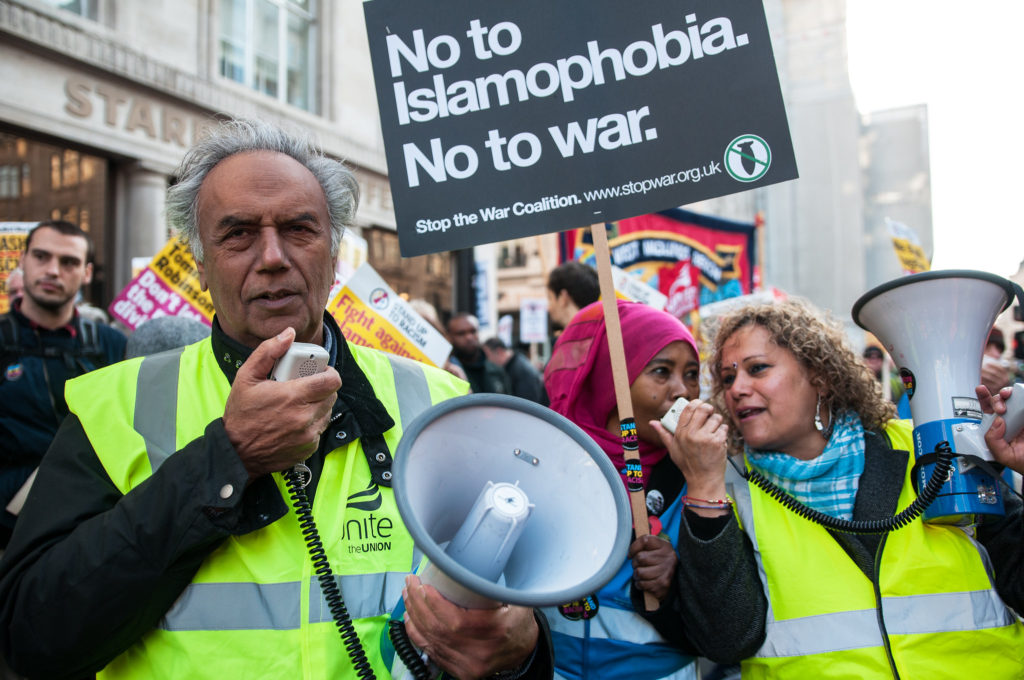In face of the continue rise of far-right movements across Europe and the worsening situation of refugees across the globe, for World Refugee Day, we recover this enlightening interview to professor Cas Mudde, political scientist at the University of Georgia and a leading expert on far-right politics in Europe.
Across Europe, parties on the far right are experiencing renewed vigor, fueled by economic uncertainty, cynicism toward the European Union, and anger over an ongoing crisis that has brought more than 1.5 million refugees and migrants to the West since 2015. By October 2017, there were right-wing nationalist members of parliament in 24 European countries. In Germany, the EU’s largest country, the Alternative for Germany party became the first far-right group in more than six decades to win seats in parliament, with co-leader Alexander Gauland vowing after the election to fight “an invasion of foreigners.”
These parties have helped reshape the immigration debate in Europe. In countries like Hungary, razor-wire border fences have gone up to keep refugees and migrants out. Elsewhere on the continent, there’s been an upsurge of protests against refugees. In Poland, for example, an independence day celebration of around 60,000 people this past November was marred by thousands of far-right nationalists waving banners of “White Europe,” and chanting slogans of “No to Islam.”
What are the defining tenets of Europe’s far-right movement?
The vast majority of the parties that are relevant are parties that are best called “radical right.” That means that they accept the basics of democracy — that the people elect their leaders — but they have major problems with some of the liberal protections of democracy. Most notably, minority rights. And so, they combine nativism, authoritarianism and populism.
Nativism means that they want their country. They believe that their state is the state of one specific nation and that everyone else constitutes a threat.
Nativism means that they want their country. They believe that their state is the state of one specific nation and that everyone else constitutes a threat. So, in Germany, there is this slogan that says, “Germany for the Germans, foreigners out.” And that is pretty much the core of nativism.
Authoritarianism doesn’t mean anti-democracy, but means that you believe that the state should enforce strict order and that you perceive almost every social issue as an authority issue. So, when you look at drugs, you don’t see a health crisis, you see an authority crisis. And so you think that you can solve that by stricter punishment and more police in the streets, and by instilling more discipline into children.
Populism is the view that society consists of two homogenous and antagonistic groups, the pure people on the one hand and the corrupt elite on the other, and that politics should follow the so-called general will of the people.
Nativism really is the core. It is largely because of the immigration issue that the populism comes in, because they feel that the elite has betrayed them by letting the immigrants in.
How would you describe the movement’s overarching message on immigration?
Well, they see immigration as a threat. And so that is important. They see it as a threat to the culture of a country, but also to the security of the country. The bulk of immigration into Europe comes from Muslim-dominant countries. So, immigrants are almost always kind of equated with Muslims. And that means that the threat is in part a cultural threat of others, and in part linked to the terrorism debate. Pretty much what the radical right wants is no immigration.
Why has this been such a powerful message for them?
 There are a lot of things there. First of all, the history of immigration in Europe is different than in the U.S. In most countries that saw immigration, they saw immigration through what was called the guest worker program. Which meant that people from initially the south of Europe — and later the Mediterranean broader — came to work in factories, and then they went back home. The idea was always that this was temporary, and in the end they would go back.
There are a lot of things there. First of all, the history of immigration in Europe is different than in the U.S. In most countries that saw immigration, they saw immigration through what was called the guest worker program. Which meant that people from initially the south of Europe — and later the Mediterranean broader — came to work in factories, and then they went back home. The idea was always that this was temporary, and in the end they would go back.
In the end though, many of them stayed and brought their families. And this was never really openly discussed. So, a lot of people feel that immigration was sneaked in. Europe has a very different discourse around immigration. Immigration is not seen as the core of the nation or an enrichment. It is at best tolerated, if it can be profitable for the home nation.
Immigration is not seen as the core of the nation or an enrichment. It is at best tolerated, if it can be profitable for the home nation.
And then there are of course some economic arguments, but also cultural arguments. Many neighborhoods have changed. So there is just the shock of things changing and people feeling like they lose their country. And there is the 9/11 aspect of the link to terror. And Europe has seen various terror attacks, which are almost always in the media linked to first Islam and second immigration.
And these right-wing groups latched onto that shock and fear?
Yes. And it’s important that they don’t really create that atmosphere. In many cases, they profit from that atmosphere, but the atmosphere was first made by mainstream media. And if you look at tabloids, but also TV and general coverage in the media, then your average story about Muslims is negative. It is about forced marriages, it is about terrorism, it is about crime, it is about sexism. It rarely is a story about a young man who gets out of a bad situation because of his faith, even though we have many stories of them. When you have such a success story, these people tend to be referred to as Dutch or German. But when it’s a gang that robs people or that rapes girls, then it is Moroccans. Or Muslims.
That’s interesting, because it seems like when we hear about the radical right, there’s an impression that they’ve given rise to many of these attitudes. You’re saying they were already there.
Yes. It’s also very much related to the feeling that the established parties don’t control the situation. It’s not only about the refugee part, it’s also about the crisis part. During 2015, the general discourse was we are in a crisis, which means the mainstream parties can’t deal with this. And so, at that point in time, the whole issue of refugees and immigration is perceived as negative, as threatening, and then by saying “crisis,” we say it’s out of control and the ones in charge can’t deal with it. So, logically, you’re looking for alternatives. And then the radical right comes into play, because they have been saying that this is a problem for decades. And they say they can solve it by just having very strict borders again. Now, many people probably know that that doesn’t probably work, but what they do know for sure is what they currently have doesn’t work.
How successful have they been? Are they mostly just a fringe element, or have they made it into the mainstream?
They have been successful because in many countries they are either coalition partners, like in Austria and to a certain extent Switzerland and Denmark; they are in government, like Hungary and to a certain extent Poland; or they are considered as options, as was the case for a while at least in the Netherlands and some other countries.
They’re mostly successful in stopping things. They don’t define how Europe sees itself, or how countries see themselves.
They’re mostly successful in stopping things. They don’t define how Europe sees itself, or how countries see themselves. So, their views are not fully implemented, but their views do affect the views of the mainstream.
Simply stated, they wouldn’t want to have any immigrants coming in, and yet they’re still coming in. They would like pretty much Islam not to be recognized as a religion, and it’s still recognized as a religion. So, they’re still much a reactionary force that responds to what is done by the mainstream. But they have been very successful in setting the agenda, and not just in deciding what we talk about but how we talk about it.
Click here to continue reading.
Source: Frontline

















No Comments